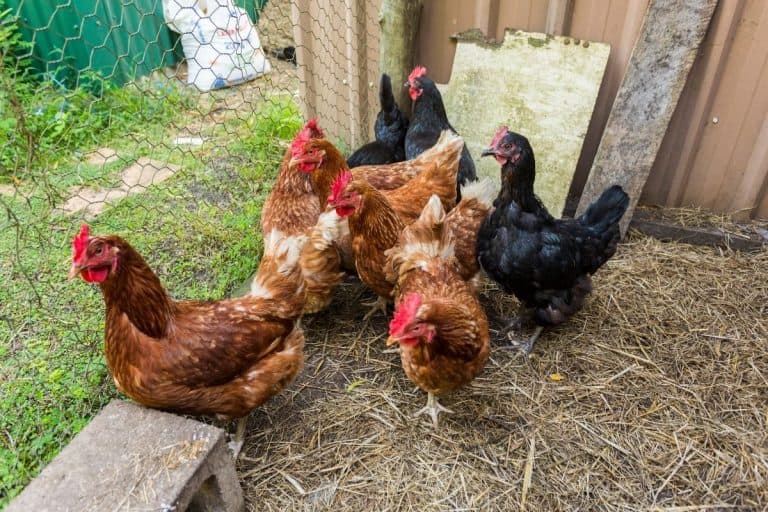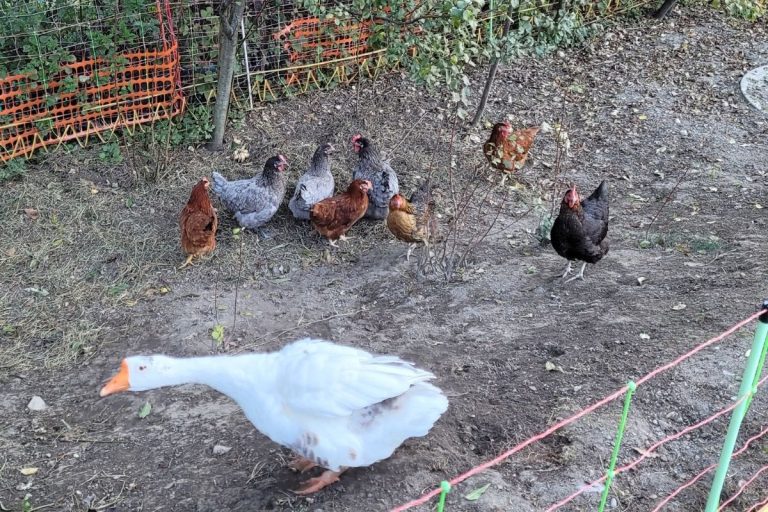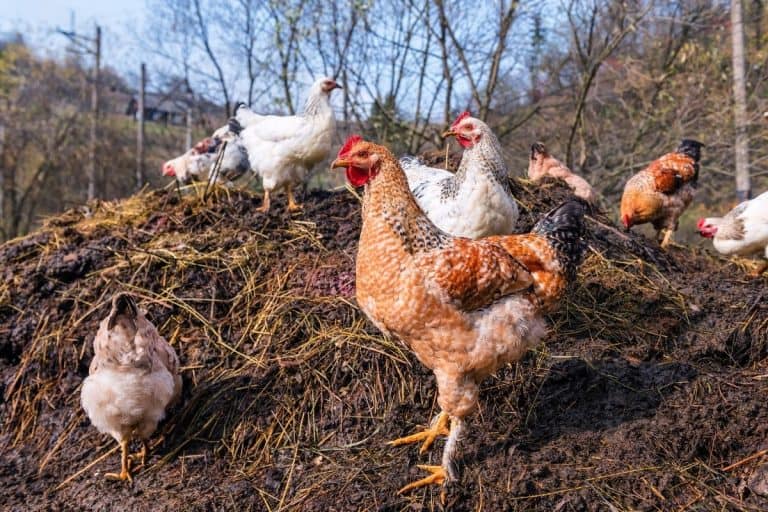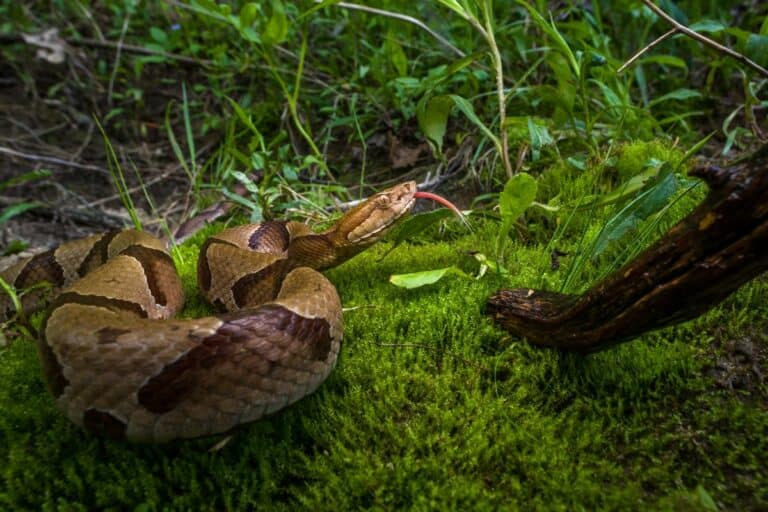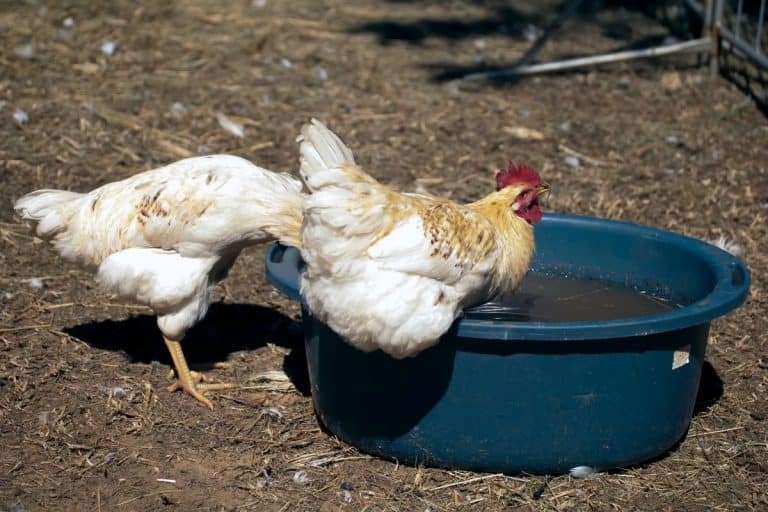7 Tips To Keep Your Chicken’s Water Clean
Chickens are not known for being clean creatures at all. They will just walk and poop into and on everything that they can, even if it’s their food or their water or wherever they sleep. They just don’t care. Trying to keep their living area clean can be a hassle but it’s a super vital part of owning chickens, as contaminated food and water can lead to a world of issues down the road.
Chicken water can be kept clean by elevating it, keeping it out of the sun and washing out the container every day. But there are several other tips and tricks to keeping your chickens’ water clean you can use.
Some have to do with where you keep the container, and other tips are just how to clean them and what to use to keep away potentially harmful bacteria and algae. This article will go over tricks and suggestions for how to keep your chicken’s water clean.
While you will see your chickens outside drinking from a dirty puddle or something else unsanitary, they do actually prefer cool, clean water normally. Don’t think that this behavior means that you don’t need to dump out and wash their water containers every day. Practicing good and healthy habits early makes it that much easier to keep a happy flock.
Hey chicken buddies: Quick heads-up before going further! I've put together a list of stuff I use and love for my flock. If you're curious about what keeps my hens happy, click here to find out.
#1 Dump it out!
Honestly, this is one of the things I stress the most. Dump out the water every day! Even if it looks clean, it isn’t. Trust me. There are all kinds of yucky things floating around in it you just haven’t seen yet.
If the water looks dirty and you just filled it up a few hours ago… dump it anyway! Use it to water your plants or garden if it bothers you to waste the water. No matter what, it is good practice to always replace any dirty-looking water. After all, you wouldn’t want to drink it either!
Chicks are the dirtiest of creatures and will go out of their way to poop into their water, I swear. Many of them enjoy perching on top of the water fountain container and will have easy access to pooping in it that way. I have found that putting something on top of it should prevent that. You should also provide them with an appropriate perching area so they aren’t as tempted to contaminate their water.
Wait, I have some recommendations for you!
Before you go any further, I want you to take a look at some of the recommendations I've handpicked for you. I think these are essential items you should have for your chickens flock. You can check them out and buy them directly from Amazon.
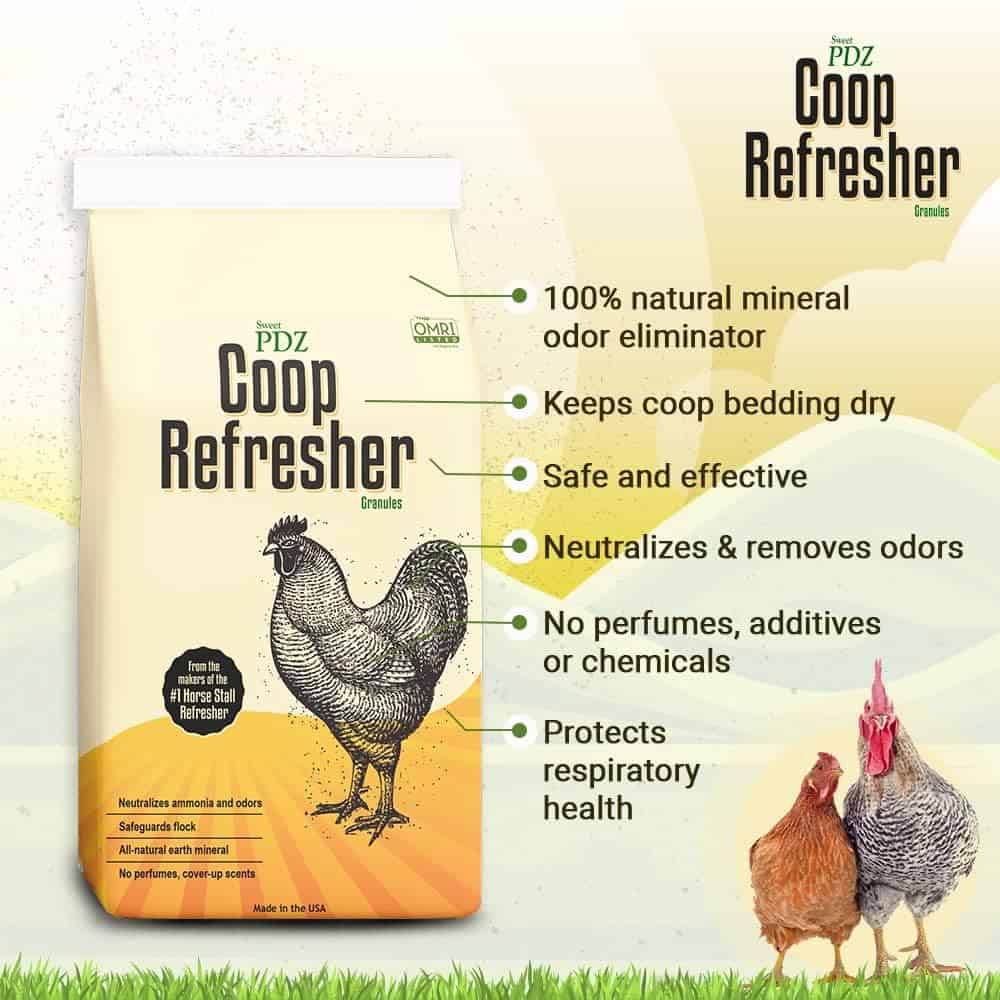 | 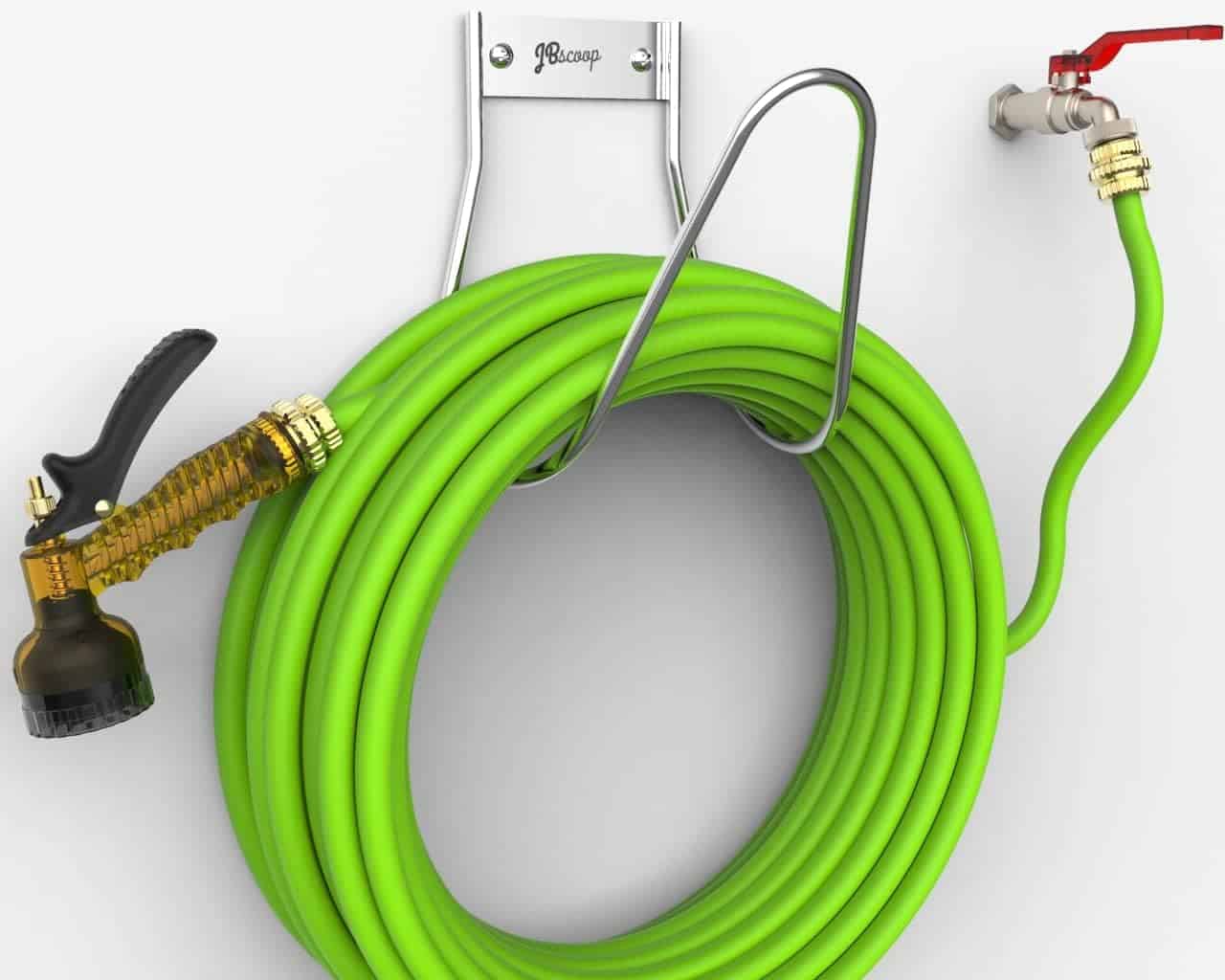 | 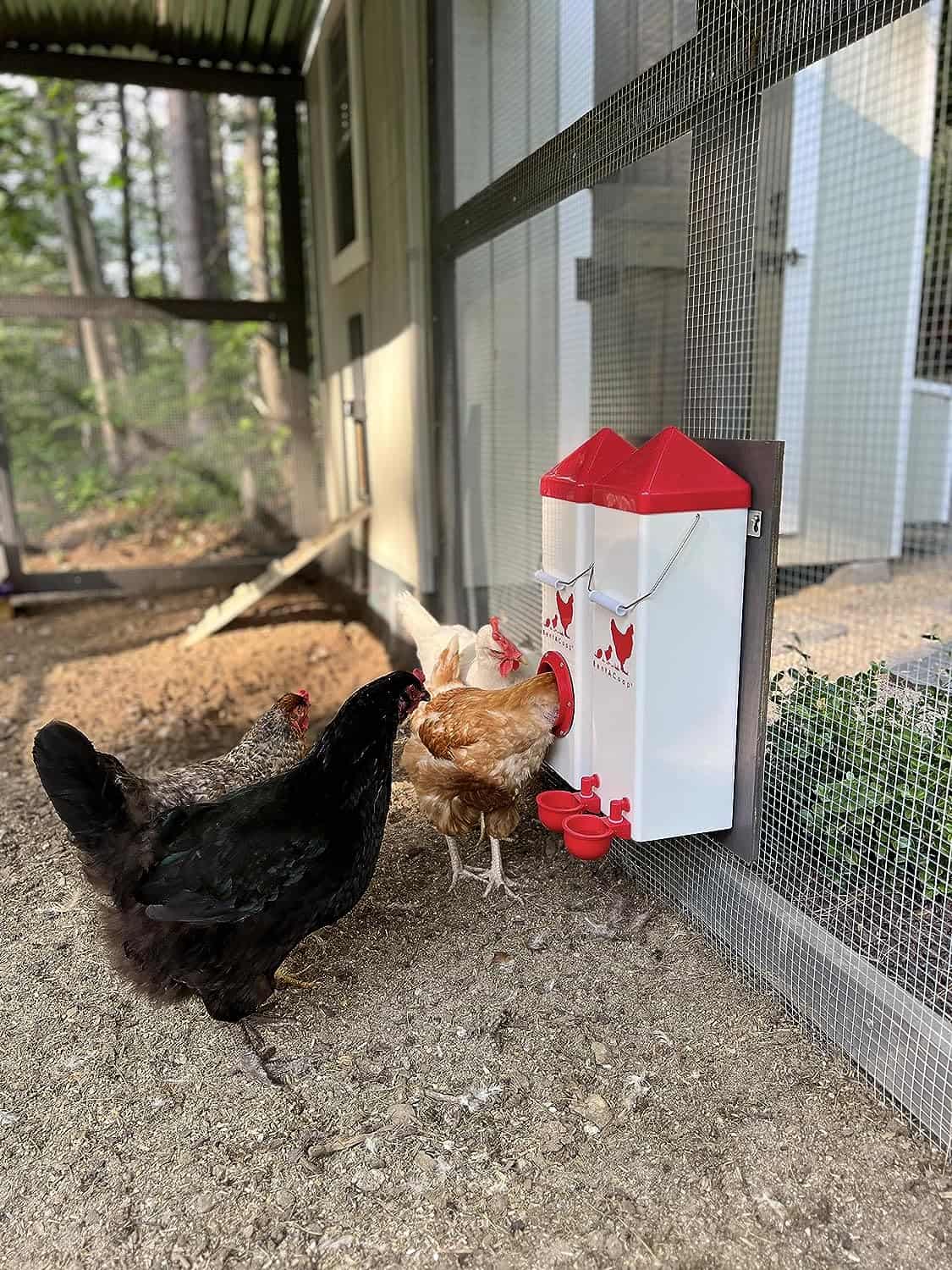 | 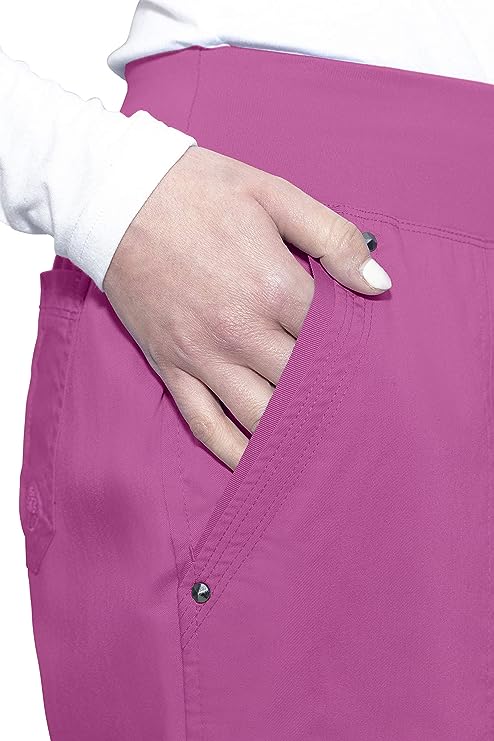 |
| Essential accessory for your coop | No more tripping over hoses! | Predator protection made easy | Comfort + style is possible |
#2 Wash out the container weekly!
You would be surprised how quickly a water fountain or bowl can become slimy and covered in algae. Algae and other bacterial contaminants can be potentially harmful and even fatal in some circumstances. They produce toxins that can affect the brain or liver of chickens and people, resulting in death. This is why washing the container with a scrub brush and sanitizing it with a vinegar solution every week is so important.
Metal fountains are galvanized and can corrode easily, the best way to sanitize them is with warm water and soap. Cleaning the water fountain with dish soap is also perfectly fine. As long as you’re using some elbow grease!
Apple Cider Vinegar VS Bleach
Vinegar is a very safe and cheap way to disinfect your chicken’s water. Using about 1 tablespoon of apple cider vinegar for a gallon of water should suffice. I don’t like to use bleach because it can be caustic and unhealthy for my birds, even if I scrub that heck out of it.
You can apply a small amount of apple cider vinegar to their water every day to try and keep it cleaner and prevent algae and bacterial formation, but if you are using a metal water fountain you should not do this. Because of the acidity, it can cause corrosion of the metal, which can then leech zinc into the water, which is toxic to chickens. Never add bleach to their water either.
Here is how to use it in video:
That’s a kind of Vinegar he is using in the video (Amazon).
#3 Elevate the waterer
When a water fountain or bowl is on the ground, it is at high risk of having dirt and other contaminants kicked into it.
You can either suspend it from the ceiling of the chicken coop, have it mounted to the wall or simply just set on top of bricks. As long as it is off the ground and away from the dangers of having bedding and fecal matter thrown into it, it should be much easier to keep clean.
Some fountains come with legs so that the water is already off the ground (here is an example on Amazon). Most of these are the ideal style of water fountain you should use for your chickens. It is convenient and easy to fill up, plus it’s already keeping the water off the ground for you!
Using a bucket or bowl on the ground is fine, but not recommended. It is very easy for these containers to quickly become contaminated and messy. If you don’t mind having to clean them out several times a day, this is completely acceptable. They are certainly not less maintenance though.
#4 Keep the water out of direct light
Having the water in direct sunlight will not only make it really warm and unappealing to your chickens to drink, but it also runs a much higher risk of becoming contaminated with algae.
Adding a few drops of apple cider vinegar will help prevent the formation of algae within your chicken’s water fountain, but it is not going to stop it entirely. Especially if you aren’t in the habit of cleaning them out every day.
Shady areas are best for keeping your chickens’ water fountain cool and free of yucky bacteria and algae formation.
#5 Keep the water out of the coop!
The coop is where my chicken’s water seems to get the dirtiest. Even if I keep it off the ground, I still think it is easier to keep it clean and safe when it is outside of the messy hen house, which I spend a lot of time cleaning by the way.
When water is in the chicken coop, it is way more likely to have dirt and feces kicked into it. For some reason when it’s outside, they are less interested in making a mess of it. I prefer to leave ours in the covered run area (more details on this here).
If you must have their food and water inside the chicken coop, purchasing a wall-mounted waterer or one that has nipples should help keep the water cleaner. However, it doesn’t mean that your coop will be at less risk of becoming messy from the water being inside (you will need to keep it clean regularly anyway).
#6 Have more than one container
Sometimes if you have several chickens and only one water fountain, it becomes a popular area to hang around, which then means that they will be drinking it faster and making it dirtier.

Not only will more chickens stay hydrated but it also minimizes bullying and lowers water spillage.
#7 Have a proper container
Maybe this tip should have made it higher up on the list, but this is a huge one. Not supplying your chickens with water from a shallow bucket or bowl will really help keep the water cleaner. When you use a fountain, the water is covered and usually, you will fill it from the top, which means less mess and fewer ways for them to kick dirt, bedding and poop into it. I’ve even seen some chickens just standing or hanging out in the water bucket when owners use an open container.
Chickens Love Making Clean Water Dirty.
I think it is just in their nature to make things as dirty as possible, but that’s just birds I suppose. So, it’s no surprise that they are just as good at making their water filthy as they are everything else. If you’re growing frustrated with your chickens’ constantly dirty water or you are just starting off and doing your research, then follow these helpful tips in keeping your flocks’ water supply clean.


